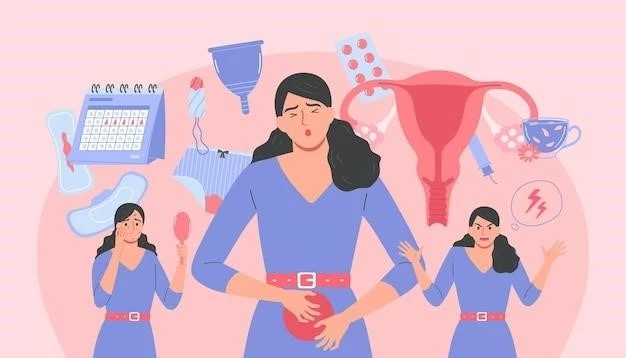Introduction to Polycystic Ovarian Syndrome (PCOS)
The term Polycystic Ovarian Syndrome (PCOS) refers to a condition characterized by menstrual and hormonal abnormalities, sometimes with polycystic ovaries.
Polycystic Ovarian Syndrome (PCOS) is a condition characterized by menstrual and hormonal abnormalities, sometimes with polycystic ovaries. It involves hormonal imbalances, irregular periods, excess androgen levels, and cysts in the ovaries, affecting 5-10% of females. PCOS is a leading cause of infertility and has long-term health implications.
Definition of PCOS
Polycystic Ovarian Syndrome (PCOS) is a common endocrine disorder in women of reproductive age, characterized by hormonal imbalances and ovarian issues.
Stein-Leventhal Syndrome
Polycystic Ovarian Syndrome (PCOS) was initially described as Stein-Leventhal Syndrome in 1935, linking menstrual irregularities, hormonal imbalances, and ovarian issues.
Diagnostic Criteria and Prevalence Range
Polycystic Ovarian Syndrome (PCOS) is diagnosed based on the presence of at least two of the following criteria⁚ irregular periods, elevated androgen levels, and polycystic ovaries on ultrasound. The prevalence of PCOS ranges between 5% to 15% depending on the diagnostic criteria applied.
Causes and Symptoms of PCOS
Polycystic Ovarian Syndrome (PCOS) is a hormonal disorder causing irregular periods, excess androgens, and polycystic ovaries’ appearance.
Hormonal Imbalance in PCOS
PCOS is characterized by hormonal imbalances, including elevated levels of androgens (male hormones) in the body. This disruption in hormone levels can lead to various symptoms such as irregular periods, acne, hirsutism (excess hair growth), and infertility.
Common Symptoms of PCOS
Polycystic Ovarian Syndrome (PCOS) presents with various symptoms including irregular menstrual cycles, excess hair growth (hirsutism), acne, weight gain, and infertility, affecting approximately 5-10% of women of reproductive age.
Impact of PCOS on Reproductive Health
Polycystic Ovarian Syndrome (PCOS) can lead to irregular menstrual cycles, fertility issues, excess hair growth, and other reproductive challenges.
Menstrual Irregularities and Infertility
Polycystic Ovarian Syndrome (PCOS) often causes irregular menstrual cycles and difficulties with fertility due to hormonal imbalances affecting ovulation.
Association of PCOS with Other Health Conditions
Polycystic Ovarian Syndrome (PCOS) is associated with hormonal imbalances leading to irregular periods, infertility, and increased risk of type 2 diabetes and heart disease.
Link to Type 2 Diabetes and Heart Disease
Polycystic Ovarian Syndrome (PCOS) is linked to an increased risk of developing type 2 diabetes and heart disease, highlighting the importance of managing this endocrine disorder for overall health.
Treatment Options for PCOS
Polycystic Ovarian Syndrome (PCOS) can be managed through lifestyle changes, medication, and other therapeutic options to address the hormonal imbalance and improve symptoms.
Lifestyle Changes and Medication
Treatment for Polycystic Ovarian Syndrome (PCOS) may involve lifestyle modifications like diet and exercise, along with medications to regulate hormones and manage symptoms effectively.

Effects of PCOS on Hormonal and Metabolic Balance
Polycystic Ovarian Syndrome (PCOS) disrupts hormonal and metabolic balance, leading to irregular periods, excess hair growth, and increased risk of diabetes and high blood pressure.
Androgens Imbalance in PCOS
Polycystic Ovarian Syndrome (PCOS) is characterized by an imbalance of androgens, leading to symptoms like irregular periods, acne, hirsutism (excess hair growth), and fertility issues.
Management Strategies for PCOS
Polycystic Ovarian Syndrome (PCOS) can be managed through dietary changes, weight loss, hormonal balance, and insulin-sensitizing medications to alleviate symptoms.
Dietary Recommendations for PCOS
Managing Polycystic Ovarian Syndrome (PCOS) includes dietary changes like a balanced diet with whole grains, lean proteins, fruits, and vegetables to improve weight management and hormone regulation.
Impact of PCOS on Women’s Health
Polycystic Ovarian Syndrome (PCOS) affects women’s health by causing hormonal imbalances, irregular periods, excess hair growth, and fertility challenges.
Influence on Hormonal Cycles and Fertility
Polycystic Ovarian Syndrome (PCOS) impacts hormonal cycles and fertility due to elevated androgen levels, irregular ovulation, and ovarian cysts, affecting women’s reproductive health.
Research and Studies on PCOS
Research on Polycystic Ovarian Syndrome (PCOS) focuses on hormonal imbalances, fertility issues, and long-term health implications for women worldwide.
Latest Findings and Developments
Recent research on Polycystic Ovarian Syndrome (PCOS) has focused on understanding hormonal imbalances, metabolic impacts, and effective treatment strategies. New developments aim to improve management and outcomes for individuals with PCOS.

Coping Mechanisms and Support for PCOS Patients
Living with Polycystic Ovarian Syndrome (PCOS) can be challenging, affecting both physical and mental health. Learn about coping strategies and the importance of mental health support for individuals with PCOS.
Importance of Mental Health Support
Individuals with Polycystic Ovarian Syndrome (PCOS) may benefit from mental health support to cope with the emotional impact of managing a chronic condition, improving overall well-being.
Future Prospects in Understanding and Treating PCOS
Research and ongoing studies aim to enhance the understanding of Polycystic Ovarian Syndrome (PCOS) for improved treatment outcomes and management strategies.
Emerging Therapies and Research Directions
Ongoing research in the field of Polycystic Ovarian Syndrome (PCOS) is exploring emerging therapies to address hormonal imbalances, improve reproductive health, and enhance overall well-being in individuals with PCOS.
